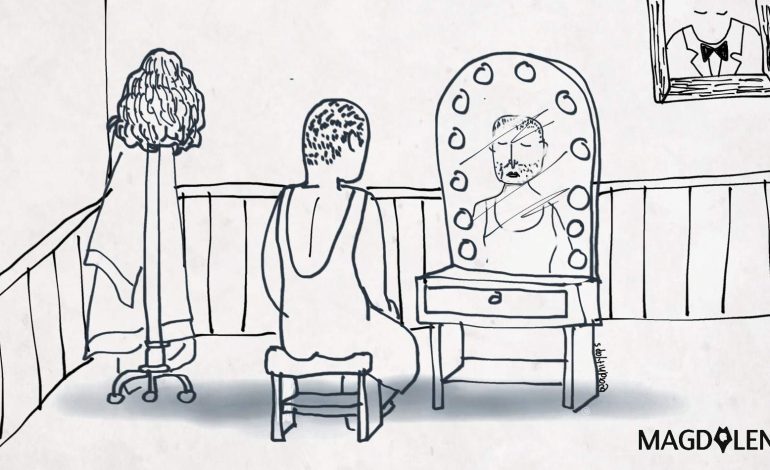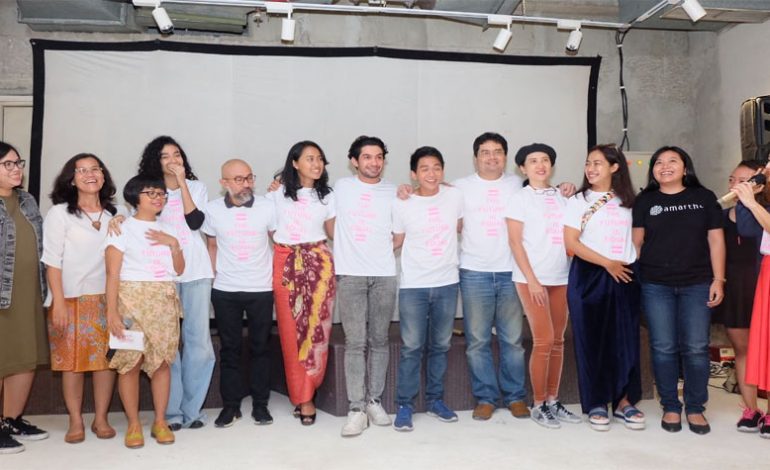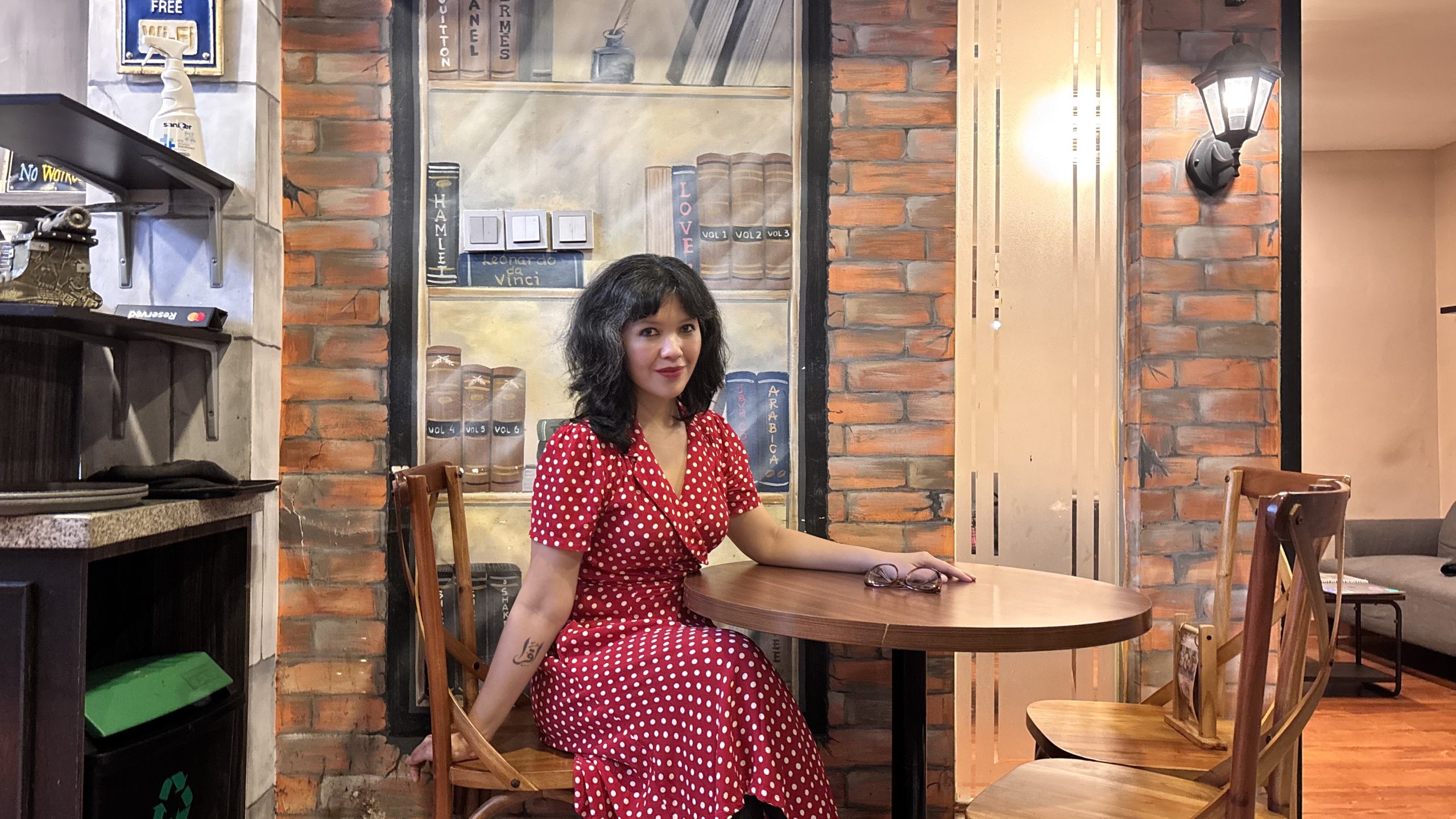Don’t Hate Your Body: 5 Body-Positive Instagram Accounts to Follow

It is not enough that we are continually fed toxic ads aimed at subduing our self-esteem, perfection as lived on Instagram has made it worse for many. On our Instagram feed we witness how strangers, our idols, acquaintances and closest ones conform to the exact same norm: be thin, be fair-skinned. At the same time, we see people criticizing each other over things that do not seem to fit the “ideal”, whether it’s skin that has turned darker, cheeks that have grown chubbier, or some exposed belly rolls.
If, like me, you feel like you have had enough, here are some alternatives Instagram accounts that represent the more diverse and realistic versions of beauty, which perhaps will inspire and empower you.

The owner of the account, Nee Cacsmy Brutus, is a Haitian-American lifestyle/fashion blogger, motivational speaker and advocate. At 15 she was battling lungs and bones cancers, and told she had only three weeks left to live. But her strength has outlived the disease. One of her legs was amputated, yet it hasn’t stopped her from living up to her true potential.
On her Instagram feed you can see the now 27-year-old posing gracefully and fashionably, often baring her prosthetic leg. Some photos also captured her stunning beauty without the prosthetics, oozing confidence. Her Instagram page has inspired many people who share similar struggle, such as what she told using hashtag #MyPhantomPain to encourage others to tell their own stories.
Nee challenges our understanding of what is “ideal” and “normal” with her message of self-love.

A picture doesn’t always paint a thousand words, and an Instagram picture often hides what lurks beneath. Milly Smith shows us that a girl who may seem cheerful or bubbly in her posts may in fact be struggling with mental illness, and that it never helps to say: “But, you don’t look depressed!”
“’You don’t look suicidal!’ I remember these words coming from the doctor’s mouth right after I’d just told him that I was having thoughts of suicide. I remember in that moment, my 14 year-old-self felt invalidation, dumb, and embarrassed: something no one in that mindset should have to feel. I left feeling confused, what was I supposed to look like? A bottle of pills in one hand and a suicide note in the other? Those words nearly cost me my life, that judgment, those stupid, stupid words,” says the caption of one of her pictures.
Milly founded the hashtag #selfloveclub to campaign about body positivity, mental health, and chronic illness. She encourages us to be more thoughtful about what we said to others, while also staying kind and truthful to ourselves.

Back when she was 11, Harnaam suffered from polycystic ovaries disease, which led to excess androgen or high levels of male hormones in the body. As a result, she started growing hair on her face and body. Being chubby and brown, she was an easy target of bullying. Her bullies called her a “man”, a “beast, or an “ogre”. They would also stab her with pens, she told the Huffington Post in an interview. Harnaam started to resort to self-harm and even attempted suicide. But then one day she decided to gather herself, and stop letting others make her feel like she had to hate her physical traits.
“The most unfortunate thing that we can do is not forgive. Sometimes the act of forgiveness can be very hard, especially when the abuse and hardship was horrendous. Forgiving someone can be extremely humbling, it takes you to delve deep within your heart, to reach for the compassion that you hold, and then to place it in the hand of your oppressor.
Through understanding we allow ourselves to forgive people. When we understand someone, we realize that in some way shape or form, we are all very similar; we all have weakness. If we all wish to be forgiven and understood, we surely must forgive and understand,” Harnaam said in one of her Instagram posts.
Now in her mid-twenties, she embraces her physical features and advocates body confidence on Instagram. She turns into a fashion model by eschewing the common norms of what is ideal for female beauty, showing that we don’t have to define feminine and masculine attributes the way society constructs them.

“I come from a fat family. If you were to look at the pictures of my mom, my grandparents, their parents, and all my extended relatives, you would notice that everyone is big. I was born a fat baby to a fat mom who had dieted and hated herself just like I would. Clothing would become one of the earliest signs that I didn’t fit into the culture around me – that I was too big to be a girl at all,” Virgie said in her essay for Refinery 29.
Writer and activist Virgie Tovar has been fighting against fat-shaming since she was a kid. She was told – and internalized – that she needed to hate her body for its inability to fit into anything. Her struggle tells a lot about how our culture accommodates only a limited range of body sizes.
In her late 20s she was introduced to fat activism, which encourages plus-size people to focus on something more important than merely to change the shape of their bodies. Virgie is now a leading expert and lecturer passionate in discussing fat discrimination and body. She founded the 4-weeks online course Babecamp to help women getting over the diet culture and she campaign with the hashtag #LoseHateNotWeight. She points out an important message that skinny body isn’t for everybody, and that fat people aren’t monster, “unworthy of humane treatment.”

Through her Instagram account, 20-year-old Emily Bador tells us that we don’t owe it to anyone to be perfect. She stresses how important it is to realize that flawed skin and imperfect body doesn’t reduce a woman’s worth.
Emily’s relationship with her bodies hadn’t always been particularly good, especially when she first became involved in the modelling industry. She exercised daily and barely even looked at carbs, but she started feeling ill, dizzy, and exhausted. Her obsession with body measurements often caused her to have panic attacks whenever she was getting dressed. Then one day she decided that she had had enough of witnessing beautiful women hating themselves because they don’t look exactly like Victoria Secret’s models.
“You are not less worthy because you don’t have a flat stomach. You are not less valid because you don’t shave your armpits. You are not less beautiful because of your scars, stretch marks, eczema, acne. I’m just so sick and tired of the objectification of women’s bodies and how it’s seemingly ok to dictate a woman’s worth based on what she looks like. If you give a shit that I or anyone else has stomach rolls, scars, eczema, armpit hair, etc then I have less than no time for you,” she said in one of her posts.





















